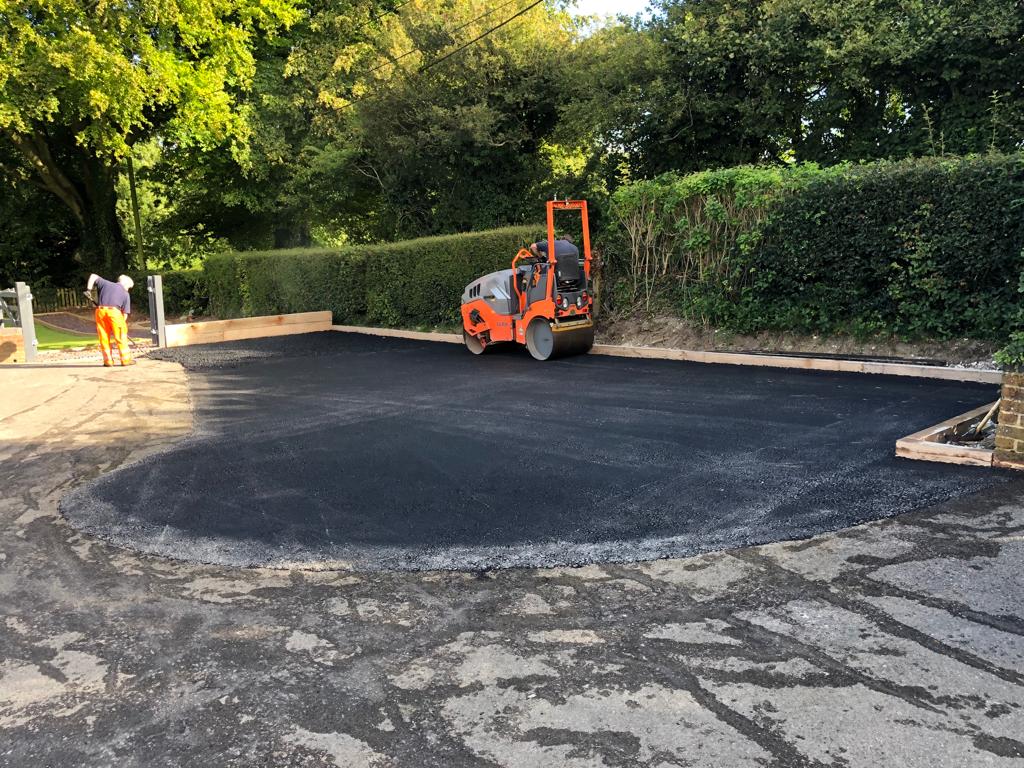Potholes are a common frustration for property owners and site managers. When they appear, it’s tempting to patch them quickly using DIY kits or temporary materials. But while a quick fix may seem like a good idea at the time, poor-quality or incorrectly applied repairs can do more harm than good in the long run.
At Coomera Surfacing Solutions in Coomera, QLD, we regularly assess and correct damage caused by inadequate pothole patching. In this blog, we’ll explain why DIY pothole repair can backfire — and what to do instead.
Why Potholes Appear in the First Place
Potholes form when water penetrates the surface layer of asphalt or bitumen, causing the underlying materials to shift, expand, and erode. With repeated vehicle traffic and exposure to weather, the surface eventually cracks, collapses, and forms a cavity.
Proper repairs need more than just filling the hole. They require:
- Assessment of the underlying cause
- Removal of loose and damaged material
- Proper compaction of base layers
- Application of professional-grade materials
Common Problems with DIY Pothole Fixes
Poor Bonding to the Existing Surface
Many DIY products don’t adhere well to aged or weathered asphalt. Without proper preparation, the patch won’t bond — meaning it can pop out after a short time or even break apart under light use.
Incorrect Compaction
One of the most crucial steps in pothole repair is compacting the material after it’s applied. DIY tools rarely provide the weight or control needed for solid compaction, leading to a weak, unstable patch that quickly breaks down.
Trapping Moisture Underneath
If the pothole isn’t properly cleaned and dried before patching, moisture becomes trapped underneath the repair. This speeds up deterioration and can cause the patch to lift or crack from below.
Superficial Repairs Only
DIY repairs often only address the surface damage, ignoring the deeper problems in the sub-base. Without fixing the root cause, the problem will return — often larger and more expensive to fix.
Uneven Surfaces and Trip Hazards
Poorly levelled repairs can create uneven driving or walking surfaces, which not only look unprofessional but also increase the risk of injury or vehicle damage.
How Poor DIY Repairs Can Escalate the Problem
A quick patch job might seem to save money now, but if it fails within weeks or months, you may end up with:
- Larger, deeper potholes
- Weakened surrounding asphalt or bitumen
- Accelerated cracking across the surface
- Higher repair costs later
- Liability for surface hazards on private properties
In Coomera and across QLD, this can be a particular concern during periods of high rainfall, where poorly sealed repairs lead to water intrusion and rapid failure.
The Value of Professional Pothole Repair
At Coomera Surfacing Solutions, we approach every pothole repair with a full site assessment and professional-grade tools and materials. Our process includes:
- Thorough removal of damaged material
- Base layer inspection and correction
- Compaction of new materials to spec
- Seamless blending with surrounding surface
- Long-term durability against traffic and weather
We understand the local soil, climate, and traffic conditions in Coomera, allowing us to deliver high-performance repairs that last — and reduce the risk of future problems.
Conclusion
While DIY pothole fixes may offer a short-term solution, they often create more problems than they solve. Without the proper materials, compaction, and base preparation, you risk making the damage worse and increasing your long-term maintenance costs.
If you’ve noticed potholes forming on your driveway, private road, or commercial surface, it’s worth getting it done right the first time. Contact Coomera Surfacing Solutions in Coomera, QLD for expert pothole repair services that deliver durability, safety, and value.
Call us on: 07 3113 9392
Click here to find out more about Coomera Surfacing Solutions
Click here to complete our contact form and see how we can help with your driveway needs.

